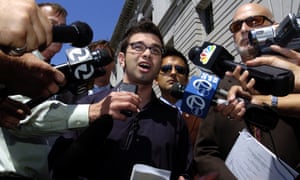Thursday - media theories memorisation
Friday - Theory qoutes memorisation
Saturday - collecting all the news stories / statistics from blog then memorising important ones
Sunday - identity and the media lessons
Monday - Section A essay / Section B essay
Tuesday - new and digital media lessons
Wednesday - going over case studies for NDM + identities
Thursday - Marxism and pluralism
Friday - Section A essay / Section B essay
Saturday - go over textbooks + glossary/memorisation
Sunday - section A essay / section B essay
Monday - go over theories, issues and debates
Tuesday - go over news articles and statistics again, check if everything is memorised
Wednesday 6 - section A essay/section B essay
4 essays in total
Tuesday, 23 May 2017
Sunday, 21 May 2017
Weekly news articles
This article goes into the investigation launched by the information commisoner on the ways in which UK political parties target voters through social media. The information comissioners have warned about political messages being sent to people based on their individual data and how this could mean they could be breaking the law. The "data revolution" has resulted in many companies using the habits of their consumers to create an ideal experience for them while also targeting their target audiences. The information commisoner has staed that "it is understandable that political campaigns are exploring the potential of advanced data analysis tools to help win votes,” but this has to take place in accordance with the law as it "relates to data protection and electronic marketing". The Information Commissioner’s Office have met representatives of the political parties in London, where they reminded them that the law applies to the collection of data even when it is on Facebook feeds and Twitter feeds. The General election this year has seen Labour and the Conservatives setting aside about £1m each to spend on advertising directly to voters through Facebook where they can target specific messages to groups of voters defined by data collected from their activity on the platform.
I believe that the combination of campaigning and social media does come with its risks, and that the information comissioners have made the right decision to launch an investigation to make sure that no laws are being breached.
This article discusses a recent claim of President Donald Trump’s suggesting that the FBI should “consider putting reporters in prison”. Many journalists and publishes consider this to be a new dangerous assault on press freedom and journalists who have been jailed in the US for their work have called for action to be taken. Donald Trumps claim has been viewed as deteriorating the relations between the White House and the media. The article goes into various similar cases, where the government have attacked journalists. New York Times journalist, Judith Miller, spent more than two months in jail in 2005 under the Bush government for refusing to appear before a grand jury investigating a government leak involving CIA operative Valerie Plame. Similarly, the Bush and Obama administrations spent seven years trying to force New York Times reporter and author James Risen to reveal his confidential source in another government leak case.
I believe that government intervention in the media is becoming a serious issue as it is a violation of the freedoms that journalists hold. Trumps presidency has also seen a lot of criticisms towards the news industry, an example being the whole "fake news" case.
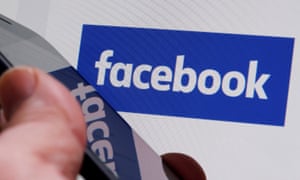
This article goes into the recent fine Facebook had to pay (£129,000) by France’s data protection watchdog. The social networking site is also being investigated by Belgium, the Netherlands, Germany and Spain for data privacy violations around the tracking of users and non-users and the use of user data for advertising. Facebook had been fined by the French Watchdog because they did not stop tracking non-users’ web activity without their consent, and an order to stop some transfers of personal data to the US. However, Facebook has argued that the Irish data protection authority, not the CNIL or any other EU data regulator, could give out such orders, as the social media company’s European headquarters are located in Dublin. Various other data watchdogs around Europe have been taking similar action. The Netherlands found that Facebook violated Dutch data protection law, Germany has taken issue with Facebook’s combining of WhatsApp user data with Facebook data, and the Spanish data protection authority has opened two infringement procedures against the social network.
I believe that this is a sign of governments across the world taking action against various infringements of privacy by Facebook, and that as the power of Facebook continues to grow the more it will continue to be attacked by various institutions.
Tuesday, 16 May 2017
weekly articles

I believe that the article gives an interesting insight into the potential future that Facebook poses on society if things continue to go in this manner. Additionally more should be done to regulate Facebook as it is increasing in power without much regulation.

I believe that culture appropriation is a major issue and often has to be considered when creating products or advertising, as various adverts have been accused of this, however I do believe that this is in some cases exaggerated. I find the statistics on social media promotions interesting as I never thought so much money could be made from promoting products, this however goes to show the relevancy of social media when selling products.
Tuesday, 9 May 2017
weekly articles
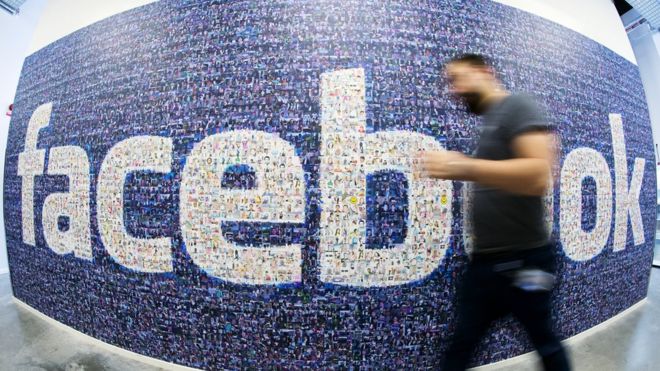
This article assesses Facebooks growth in users and highlights how most of these new users coming from outside of Europe and North America. According to the article, a quarter of the worlds population now uses Facebook every month. This hints at the impact of globalisation,because more and more users seem to be using social media sites such as Facebook on a daily basis. However, Facebook has come under pressure in recent weeks over its handling of hate speech, child abuse and self-harm on the social network, and has responded to this by announcing that it was hiring 3,000 extra people to moderate content on the site. Mr Zuckerberg is planning to use this growth in size of its user base as an opportunity to expand the site's role, moving into TV, health care and politics. According to the article, the company grew its revenue from advertising, which accounts for almost all of Facebook's income by 51%. However, this is to slow down due to the fact that Facebook is hitting a limit on the number of ads it can squeeze onto users' pages without being a nuisance.
I find the fact that a quarter of the worlds population uses Facebook fascinating, and this demonstrates the capabilities of a social media site to have influence over a vast amount of the population.
- During the 2015 general election campaign, the Conservatives spent more than £1m on Facebook advertising
I believe this highlights the growing link between politics and social media, as demonstrated by Facebooks attempts to influence politics and play a role in elections.
Section B exam practice
Does
your case study suggest that new and digital media have had a positive impact by
offering audiences a more diverse
range of values and ideologies?
The recent
developments in new and digital media over the past decade have had a
significant impact on audiences. Accessing a diverse range of values and
ideologies has become far easier, and essentially could be argued that it has
had a positive impact on audiences. Nevertheless, there are various
implications that can come with new and digital media, and the extent to which
it positively offers a diverse range of values and ideologies is debatable.
The rising
power of the internet, often referred to as triggering the “information
revolution” has resulted in traditional mediums of media being pushed aside in
favour of online media. The “digital first strategy” which has been taken up by
traditionally print newspapers could be argued to have had a positive impact on
audiences as this “survival of the fittest” initiative has resulted in
newspapers adapting to provide audiences with platforms in which they can
engage with audiences, whether through forums or comment sections such as the
Guardian site. This could be argued to have had a positive impact, as audiences
which were once passive are now more active and can positively interact and
come across a range of values and ideologies. However, it can be argued that
each institution, whether online or not still have agendas and promote their
own ideologies and values and this is guaranteed through the selection and
mediation process. Although news institutions such as BBC are renowned for
their impartiality, James Murdoch, criticises stating that state sponsored
journalism is a “threat to the plurality and the independence of the news”,
thus suggesting that state sponsored news regardless of its impartiality can
also hinder audiences from coming across a diverse range of values and
ideologies. Traditional forms of media are more biased, as they always carry
and reinforce their own values and beliefs through their newspapers rather than
allowing for audiences to come into contact with a diverse range of values and
ideologies, but it can be argued that there is still a continuation of this
regardless of whether traditional institutions have moved online.
A pluralist
would argue that there has been a positive impact on audiences. Due to recent
developments such as the rise of the internet, it has become easier for audiences
to access a more diverse range of values and ideologies. The internet as a
platform has provided a degree of flexibility, where audiences can
“conform,accommodate or reject” these values and ideologies rather than a
limited range of values being implemented on audiences (Hyperdermic needle
theory). Audiences can easily come across various values on social networking
sites, through bloggers and even the comments section of online media outlets
such as the Guardian, thus highlighting the positive impact it has had.
However, it
could be argued that new and digital media has had a negative impact in
providing audiences a diverse range of values and ideologies. New forms of
media such as the internet have accelerated the process of globalisation which then
fuelled cultural imperialism. As a result, this has led to the
“Americanisation” of the world, where majority of audiences end up holding the
same democratic values as others.
In terms of
social media, it can be argued that platforms such as Twitter have provided
audiences with the opportunity of coming into contact with a diverse range of
values and ideologies. Twitter has allowed for the creation of various
communities, notably “Black Twitter” in which users challenge racial
discrimination and discuss social and political issues to raise awareness. Audiences
as a result can come across values from a diverse range of people, ultimately
suggesting that social media has become a tool for the dissemination of different
values and ideologies. Alongside this, movements have formed, a prime example
of this is the BlackLivesMatter movement which has had a prominent presence on
Twitter. Due to the “trending” mechanism on Twitter, more people have come
across the values and ideologies of social movements such as BlackLivesMatter.
The Arab Uprisings also had a notable presence on Twitter, with many tweeting
their grievances on the site and organising marches. This has led to
revolutions across various middle eastern countries while also raising
awareness to global audiences. Whether this has had a positive impact is
debatable, but it highlights the significance of social media sites such as
Twitter in enabling worldwide audiences in gaining access to a diverse range of
values and beliefs as this is capable of causing revolutionary change. However,
this is counterargued by Malcom Gladwell, who argues that social media although
an effective tool, does not have the power to bring great revolutionary change
as traditional activism. The US General elections are also another prime
example of audiences coming into contact with a diverse range of values and
ideologies. Politicians such as Donald Trump and Hilary Clinton have taken
advantage of the site to engage with audiences and implement the values and ideologies
of their campaigns. This occurs on a daily basis, also demonstrated by the EU
Referendum campaigns that took place on Twitter. Overall, this suggests that
the internet and social media have had a positive impact because they have made
it easier for audiences to access a diverse range of values and ideologies
while also voicing their own.
However,
new and digital media also have their implications. Social media sites such as
Facebook and Twitter have been accused of creating “filter bubbles”. Facebook
is a prime example of this, due to its algorithm based model, audiences only
come across views and ideologies that reflect their own due to their reading
habits. Tailored news on Facebook for example means that audiences will only be
suggested to read articles from newspapers that are parallel to their own
views. Twitter similarly creates echo-chambers due to users only
following those who reflect their own identities and hold the same values and
ideologies as them. This suggests that also new and digital media has had a
positive impact and liberated audiences, it has to some extent also limited
audiences, as audiences are less likely to come across views that differ to
theirs. This can be demonstrated through the EU referendum phenomena, where
those on social media sites such as Twitter predominately thought the UK would
remain in the EU. This is a clear example of the negative impacts of social
media, as it acts as a form of hyper reality (Baudrillard) by distorting the
reality of the referendum while also preventing audiences from coming across
other ideologies and values. Additionally, having a wide range of values
and ideologies available can have its implications. Although these social media
sites advocate for freedom of speech, this freedom can easily be manipulated
through the spreading of dangerous ideologies such as terrorism and hate. ISIS
are a notable example of taking advantage of these sites to spread dangerous
views and values, suggesting that new and digital media may have in fact had a
negative impact as it was much more harder in the past to access these types of
content.
Overall,
new and digital media has had a positive impact on audiences by offering a
diverse range of values and ideologies through various new platforms, but the
limitations that come with new forms of media have essentially hindered this.
Sunday, 7 May 2017
UWL lecture notes
Citizen Journalism: Social media in the newsroom
- The 7/7 attacks in London - Adam Stacey was on one of the underground trains, used mobile technology. This is an example of citizen journalism that constitutes as hard news
- Various articles at the time referred to this as "the rise of the camera phone"
- The death of Neda Aghan-Soltan - Death was captured by mobile phone footage by bystanders, then broadcasted on the internet
- Black Lives Matter (In particular Ferguson riots), led to social and political change, awareness.
- Paris Attacks 2015 (Bataclan). Citizen journalism affected mainstream media coverage as most footage was obtained through citizen journalism, not media outlets. Social media also been used by civilians during acts of terrors such as Facebook safety checks and users on Twitter offering shelter
- There is an argument whether social media is revolutionary enough
- Key moment: 2011 Arab uprising
- It was the key to symbiosis between mainstream media and social media. Social media was instrumental to socio-political struggle and to covering these uprisings
- Gadaffis death was documented on social media
- Citizen journalism showed Gaddafi being captured and being beaten death by Libyan rebels
- This links to ethic debate. Ethical issues are present when it comes to airing graphic content, such as the death of Aylan Kurdi, some showed his face some didnt
- Debate whether younger generation are more desensitised than others
Ethical considerations that need to be made
- Invasion of privacy
- Airing graphic images which often go against public broadcasting
- Dehumanising
- Potential of spreading dangerous images (ISIS propaganda)
Problems with citizen journalism
- Not always authenticated footage
- Getting the story first rather than getting it right
- Alternative agendas, biased images (Activists, oppositions etc.)
Digital media in the news room
- Facebook and Buzzfeed investing in digital video content
- Breaking news on social media E.g. Hudson river crash, it was first tweeted
- Twitter hashtags make it easier to keep up with breaking news
- United Airlines, first on social media then news. Citizen journalism can lead to PR disasters
- Social media is useful for media outlets to find out what people think
- Algorithims - we only see stories similar to what we usually choose to read, leads to a filter bubble/echo chamber
- 80% of what circulated was pro-brexit such as the sun,broadcasting hid this, more impartial and showed both sides. In print there was a more prominent split between pro and anti brexit
- 2015 - first year people globally spent more time online than watching Tv
Facebook: 1 billion active users per day
Youtube: 1 billion active users per day
Twitter: 350 million active users per day
- Vertical video - creating content for mobile phones E,g, snapchat, hard news stories
- BBC Media action campaign
- Facebook live - reaching bigger audience
Fake news = Made up or someones interpretation
- Lead to mistrust of the media
- Social media has been a way to share what is going on but has led to problems with fake news + own agendas
- Terrorists - Has to have political agenda. Tube planned bombs, had no political agenda so did not refer to as terrorist
- Institutionalized racism? 3 Muslims killed in a parking lot by white supermacist should have been labelled as terrorism
Media feedback
1) Type up your feedback in full (you do not need to write mark/grade if you do not wish to).
62/80 B
WWW: Very good grasp and analysis of the news case study
EBI: You need to include your independent case study in section B
2) Did you succeed in meeting or exceeding your target grade for A2 Media? If not, how many additional marks do you need across Section A and Section B to achieve your target grade?
I met my target grade for A2 media. To exceed my target grade I would need 3 extra marks
3) Read through the mark scheme. Pay particular attention to pages 6-8 that have suggested content for each of the questions in Section A. How many of these potential points did you make? Did you successfully answer the questions? The original question paper is here if that is helpful.
I gave several similar examples to the potential points suggested by the mark scheme for question 1, but could have included more examples and analysis for the Russell Brand video. However, my analysis was not as sophisticated as it could have been and this limited answer has pushed down the mark. Similarly in question 2, the analysis was sufficient but there could have been more examples used. I could have also referred to production standards and the presentations of facts rather than opinions to create a stronger argument. Question 3 got a slightly higher mark, but could have been full marks if i referred to potential points such as the differences between certain institutions and gave stronger examples.
4) Which was your strongest question in Section A? Why did you do better in that particular question? Note the number of marks each question is worth.
Question 3 was my strongest answer in section A where I got 9 marks out of 12. I did better in that question due to the recent examples I gave and continuously referred back to the question. In question 2 I achieved 8 marks and question 1 I achieved 5 marks.
5) Which was your weakest question in Section A? Again, try and identify why this happened. Did you misinterpret the question? Did you run out of time?
Question 1 was my weakest question in section A where I achieved 5 marks. I believe the reason for this is because I did not go into much depth with my analysis of the products
6) Now look at pages 11-12 of the mark scheme for Section B - New/Digital Media paying particular attention to the suggested essay content on page 12. How many of the broad areas suggested by AQA did you cover in your Section B essay? Did you successfully answer the question?
I believe I successfully answered the question as Section B was my stronger section in the exam paper. I believe this is due to the better essay structure and in depth analysis that included various media debates. I referred to most of the broad areas suggested by AQA such as the recent developments in new and digital media, the changing role of media producers and how they respond to it. I may have gotten the extra 8 marks if I included more examples or perhaps explained them more in depth.
7) Read the Examiner's Report in full. For each question your answered, would you classify your response as one of the stronger answers or one of the weaker answers the Chief Examiner discusses? Why? What could you do differently next time? Write a reflection for EACH question in the paper: Q1, Q2, Q3 and Q6 OR Q7.
Q1: I would classify my response as one of the weaker ones. Although i referred to some of the the desired points made in the report, I only focused on a few media language techniques which made me lose out on marks
Q2: I believe I done better in this question due to the fact that I referred to the marxist perspective, which the examiner report expects to see in the better responses. I believe that I should have mentioned the media products in addition to my examples, which were also limited.
Q3: I believe I should have taken a stronger standpoint and referred to both sides of the argument in this question, which is a key point mentioned in the examiner report. However, I explained how various platforms such as Twitter have been used, which the examiner report points out as being in the better responses.
Q6: I could have referred to the BBC moving to BBC3 online, which is a recent development and the New Day newspaper. I however referred to various points made in the examiner report, such as paywalls. Although I did not include my own case study in the PPE I believe this would have enabled me to get relevant marks as Twitter is a recent subject.
8) Choose your weakest question in Section A and re-write an answer in full based on the suggested content from the Examiner's Report. This answer needs to be comprehensive and meet the criteria for Level 4 of the mark scheme. This will be somewhere between 3-6 well-developed paragraphs (depending on the question/number of marks available).
Question 1
Various media language techniques have been used by each media product to make them appear authoritative and trustworthy. The use of a male voice as a narrator immediately creates an authoritative atmosphere, as male voices are often associated with dominance and superiority. Product 1 takes advantage of mise-en-scene to portray a glitzy lifestyle which illuminates control and authority. The location, the city of London is a power hub in terms of political and economical life which links back to authority and superiority. The protagonist is also wearing a suit and tie which reinforces this image of authority and professionalism, which also links back to the theme of trustworthy. The flashback shot of the protagonist previous lifestyle creates a trustworthy image as it suggests that the protagonist was once in a similar position as the audience, this personal identification (Katz and Blumler) portrays the company as reliable and honest. The shift to a new equilibrium (Todorov) creates a sense of hope and opportunity for the audience, which makes the product seem more appealing and trustworthy. This is reiterated through language such as "stay true to yourself".
Product 2 creates a more trustworthy image as a news institution through the use of interviews with the residents of the estate. This sense of realism makes the product more trustworthy due to its similarities with traditional news. Alternatively, the use of victims adds onto the products validity and allows audiences to relate. The use of Russell Brand, a celebrity, also reinforces reliability to the Trews image due to Brand acting as an opinion leader (Two step flow model), while also implementing authority as audiences are more likely to listen to a significant figure. The use of hand-held editing reinforces the raw and and realistic image of everyday life, and by editing in headlines reinforces this image of the Trews as a reliable media outlet due to the relevant discussions on issues that are currently taking place.
Tuesday, 2 May 2017
weekly articles

This article discusses the discoveries of a parliamentary report on social media and the issue of illegal and dangerous content which is easily accessible. Hate speech, terror recruitment videos and sexual images of children take too long to be removed, according to the Home Affairs Select Committee report, and this ultimately is a dangerous threat to the general public. The report also suggested that the government should consider making the sites help pay to police content. However, a former Facebook executive argues that the report "bashes companies" rather than offering any real solutions to the issue. The report recommends various solutions, such as the government consulting on requiring social media firms to contribute to the cost of the police's counter-terrorism internet referral unit and fines
Examples
- Twitter refused to remove a cartoon depicting male ethnic minority migrants abusing a semi-naked white woman while stabbing her baby to death on the grounds it was not in breach of its "hateful conduct policy"
- YouTube refused to remove a video entitled "Jews admit organizing White Genocide" on the basis it "did not cross the line into hate speech"
- On Facebook there were openly anti-Semitic and Islamophobic community pages such as "Ban Islam". Facebook removed some posts but not the community pages themselves because its policy allows criticism of religion, but not hate against people because of their religion
I believe that government interference is necessary in some cases as some of the content posted is a threat to the wider public, such as hate crimes which can provoke actual attacks on citizens. However, social media sites should also take responsibility and create their own solutions to police content.


This article discusses how Twitter wants more leaders to utilise Twitter in a similar manner to Donald Trump during the elections due to the benefits it has provided with twitter such as its strongest user growth in a year. Although Twitter is not entirely attributing its boost to the world leader, it is suggested by one of their executives that Trump’s prolific usage was a good model for other leaders, and for its business. “We’d love it if every world leader used Twitter as their primary mechanism to talk to their constituencies,”. Donald Trump is still continuing to use Twitter, in the recent months he has used the social network to bully foreign governments, threaten companies, and accuse his predecessor, Barack Obama, of tapping his phones.
- Twitter’s monthly users increased by 9 million (or 6%), to 328 million
- Its daily users increased by 14% in that same time period (the company doesn’t share its total daily active user
I find it interesting how Twitter had a boost in users during the US elections, which suggests that more and more people are joining Twitter becoming reliant on Twitter as their source of information
Sunday, 30 April 2017
presentation notes
The growth of Spotify
- 100 million users (2016)
- Based on an access rather than own model - easier
- However, it threatens CD/DVD sales, which saw revenue fall by £8.7m
- Theories: Paeretos law, only the top artists get listened to the most
- Cultural imperialism - there is the promotion of predominately American music
Instagram
- 150 million users
- 59% of users are 18-29 years old
- UGC based - we construct our own identities
- Americanisation is prominent on instagram
- Marxists argue that Instagram encourages capitalism
Gaming industry
- Consumption has essentially stayed the same
- UGC not prominent in industry
- Theories that can be applied: techno panic/ katz and blumler escapism
- Social media is used to promote the games E.g twitter to post daily updates
- GTAV fastest selling game ever, $1bn in 3 days
Donald Trump and the media
- Elections focused on narratives than actual information
- Social media is argued to have diluted politics
- Main issues that have been raised during elections - Fake news, Russian intervention
- Opinion leaders were prominent in elections
The documentary genre
- Audience - transformed from cinema to domestic viewing
- Documentaries have to trend to get an audience reach
- Docu-dramas - easier narrative
- Youtube is endangering the documentary genre as audiences create their own documentaries
- Modern documentaries go straight to netflix rather than cinemas and dvd
Film viewing/distribution
- Netflix is cheaper: 1 cinema trip = 7 months of netflix
- Older generations are not familar with VoD so dont mind going cinema
- But there is a lower quality, issue of internets
- Marxist would argue power lays with the distributors
- Streaming industry is taking over industry wide
Netflix streaming
- Company founded in 1999
- Profile system makes it more personalised
- Americanisation is accelerated as most shows from netflix are influenced by American culture
- Social media is used to promote shows on Netflix
- Audience are mainly C1C2DE
Snapchat
- Snapchat is the third most popular social network
- Had a positive impact as its a new method of communication
- Snapchat and news merging, stories feature
- "Snapchat will be bigger than Twitter, Yahoo and AOL with advertisers"
- However has flaws such as dangerous to use, health and safety risks come with it if people are not aware of surroundings
Tuesday, 25 April 2017
Weekly articles

This article discusses Jimmy Wales plan of a new news service that combines the work of professional journalists and volunteers. "Wikitribune" aims to have "factual and neutral" articles that help combat the problem of "fake news". Wikitribune will be ad-free and free-to-read, but will rely on supporters making regular donations.Mr Wales believes that the advertising-based model used by most of the media had led it to "chase clicks", which affected standards, thus the reason to why he decided to go for an entirely new model. This however isnt only reinventing the commercial model for journalism but also its reinventing the editorial one too. Wikitribune will be based on the work of both journalists and volunteers. News has traditionally been selected by editors, who are gatekeepers and curators. But Wales, who is the founding editor of this publication, doesn't see it like that. "It's more a management role than editorial vision or pursuing an agenda," The fact that people are willing to pay for high-quality news highlights the potential of Wikitribune. Wales cited New York Times subscriptions and Guardian membership as examples, suggesting that Wikitribune may be a success if done right.
I find the concept of Wikitribune interesting as it is innovative and different to traditional forms of media outlets, I am not sure if Wikitribune will be able to conquer the issue of fake news, but believe it highlights a new era for media outlets due to the new model it is based on.
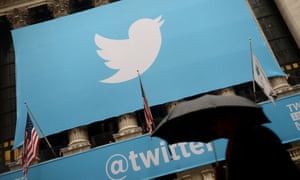
This article discusses how the US government has backed down from its attempt to unmask an anonymous Twitter account that criticized the Trump administration, which was a victory for free speech advocates. Twitter sued the Department of Homeland Security to block its effort to gain identifying information about an anonymous account which a day later saw the attorneys from the justice department withdraw their disputes. This was seen as a victory by free speech advocates who had reacted with outrage to the fact that government officials were targeting anonymous dissidents, which could be argued to be a breach to rights, as we should all have the rights to criticise whether it is anonymously or not. The account is one of dozens of “alternative” Twitter accounts that have sprung up since Trump’s inauguration. The accounts express the views of dissenting civil servants within various federal agencies, but they are generally anonymous and unverifiable. The president’s ongoing hostility to both the press and his critics, alongside this case continue to raise concerns for free speech advocates, as some see the future as threatened due to Trumps presidency.
Personally I find it quite surprising that a lawsuit was opened, and that this foreshadows the threats to come towards social media and freedom of speech. However, this is a victory for not only free speech advocates but also technological companies and the press, which are under threat as demonstrated by Trumps criticisms.
Sunday, 23 April 2017
Tuesday, 18 April 2017
weekly articles

This article discusses the recent murder of a 74 year old grandfather, Mr.Godwin, that was livestreamed on Facebook. The case has raised questions about the social networking site’s ability to moderate content, particularly when there is an active crime unfolding. Within the manifesto posted by Zuckerberg around 2 months ago, he explained how that his company is researching systems that use artificial intelligence to look at photos and videos to flag content for review. Perhaps this software may be useful in the future to tackle this issue. However, this is not the first time that Facebook has amplified a crime in real time. Last month a 15-year-old girl was raped by multiple people in Chicago, an attack that was streamed on Facebook Live. In January three men were arrested in relation to a similar incident involving the live-streamed rape of a woman in Sweden. Last year 23-year-old Korryn Gaines used Facebook to broadcast a standoff with police in Baltimore, which ended in the mother of one being shot and killed. This highlights how the social media site can easily be manipulated for dangerous uses. Essentially, social media removes the gatekeepers between performance and distribution.
I believe that more should be done about crimes taking place while livestreaming, as the platform is constantly being manipulated in a dangerous manner. Hopefully, the software that Facebook are developing will be useful, but I personally believe there should be some form of traditional gatekeeping.

This article discusses the threats that journalism faces in the age of new and digital media, and issues such as fake news and opposition from figures such as Trump. According to the article, traditional newsrooms which provided most original journalism are declining, news media in the past was much more simpler: gather an audience by providing content, including news. However, with the internet becoming the new dominant force how we consume our news has changed. The audience no longer assemble in the same concentrations. The family no longer gathers around the news on television. Most homes have multiple screens and news is absorbed as it happens. As the writer calls it “Appointment television” is nearly dead, at least for those under 50. The article continues to go on about how publishers and broadcasters have moved online, but how the advertising model had failed. Ads on websites earn a fraction of the amount that used to be charged for the equivalent in a newspaper or during a program break. Fake news is another issue, which seems to be damaging journalism. The article suggests that the nature of journalistic work has changed due to many journalists now work aggregating or producing digital content, never leaving their desks. Overall, the article suggests that social media companies will begin to invest in quality content, while traditional forms of media continue to decline.
- It is now estimated that of every dollar spent on advertising in the western world, 90 cents ends up in the pockets of Google and Facebook.
I agree with the article in terms of how traditional forms of news are declining, and how we are entering a new era where news is much more experimental. I do believe that good journalism is under threat and more should be done to preserve it.
Thursday, 13 April 2017
weekly articles

According to this article, the German government has recently published a draft law that will impos fines of up to €50m on social network sites that fail to remove hate speech, fake news and other undesirable content from their platforms. The German government have decided that social media companies will have to explain rules and complaint procedures clearly to their users and follow up on each complaint. Content that is illegal will also have to be taken down within 24 hours, while other law-breaking content must be taken down or blocked within seven days. The draft law comes after the belief that the big internet companies aren’t taking their responsibilities seriously. This signifies the evolving struggle between democracy and digital technology, where social network platforms determine what people read, see and hear. With the growing powers of social media, the article suggests that there is a sense of responsibility that should come with it, for example research has found that the majority of Americans said they get news via social media, and half of the public turned to social media to learn about the 2016 presidential election. This doesn’t mean that people get all of their news from Facebook and Twitter, but it does highlight how owners of big internet platforms have acquired some of the power that has traditionally been ascribed to print and broadcasters.
I believe that the government is taking a big step in protecting the general public while on social media, as many of these companies have found ways to bypass implementing actual strong changes until recently. The fines are quite high, and some do argue that this is breach of many freedoms as what one may consider as hateful is not to another.

This article discusses a study that has revealed how children who spend more time on online social networks feel less happy in nearly all aspects of their lives. Researchers have found how the more time children spend chatting on social media sites such as Facebook, Snapchat, WhatsApp and Instagram, the less happy they feel about their school work, the school they attend, their appearance, their family and their overall life. However, the study has found that they do feel happier about their friendships. Social networking has transformed childhoods dramatically in the past decade and is becoming a concern for politicians and organisations which are responsible for safeguarding children. As a whole, the research suggests that going online makes children more likely to make negative social comparisons with others, which results in these insecurities.
- Economists found that spending just one hour a day on social networks reduces the probability of a child being completely happy with his or her life overall by around 14%.
- More than 90% of 16- to 24-year-olds use online social networks and while most sites stipulate a minimum user age of 13, few apply any checks.
- A BBC survey found that more than three-quarters of 10- to 12-year-olds have social media accounts. A report by the media watchdog Ofcom found that more than half of children aged as young as three and four use a tablet while one in seven has their own device.
- The amount of time that children between eight and 11 and those aged 12-15 spend online has more than doubled in a decade
I am not surprised by the result of these statistics as the impact of social media on the youth is known to be negative. However the statistics highlight how grave this issue is and how more should definitely be done to improve the lives of the youth.
Wednesday, 12 April 2017
weekly articles
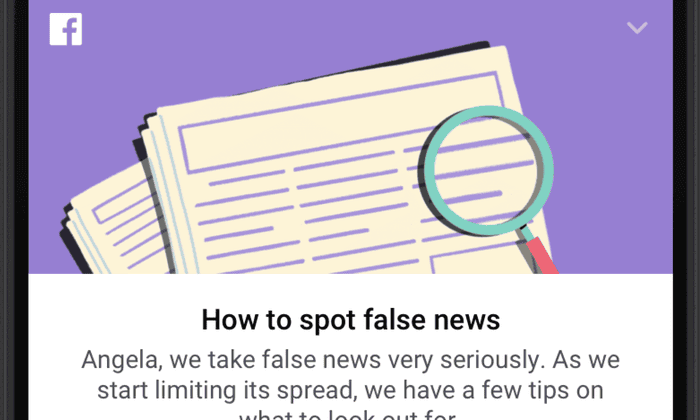
This article discusses how millions of Facebook users will soon be offered tips for spotting fake news as part of the social network’s latest attempt to address concerns about its role in the spread of false information. There will be a new “educational tool”, a “signals” tracker for user behaviour and third-party fact checkers to make misinformation less prominent on the social network. Facebook will now be using third-party fact checkers such as Snopes and PolitiFact to limit the spread of stories. However, signals which will affect the ranking of articles in the news feed, such as whether a someone is less likely to share a story after they have read it, could affect legitimate publishers including established newspapers, as well as controversial digital outlets such as rightwing US site Breitbart. There will be a large post at the top of users feeds with messages such as “it is possible to spot false news” and links to 10 tips for identifying misinformation including checking web addresses and being skeptical about headlines which make shocking claims. According to the article educational measures are necessary to help people evaluate fake news that made it into news feeds while also encouraging a more critical approach towards certain articles, Facebook has defined fake news as "articles that set out to deceive, contain objectively provable falsehoods and pretend to be from a “legitimate” news site". The social networking site has recently been criticised for being slow to take responsibility for its role in spreading misinformation, for example during the US election when fabricated stories about Donald Trump and Hillary Clinton were read and shared by millions. Governments have also indicated a willingness to ensure technology companies take more responsibility for the what appears on their platforms. For example, the German chancellor, Angela Merkel backed legislation that could lead to fines of up to €50m if social networks refuse to remove illegal content or don’t give users an effective way to report hate speech and fake news.
From reading this article it is clear that Facebook is attempting to defeat their issue of fake news with effective approaches. I believe that by educating users it will have a greater impact and that this would work well alongside with the third party features.

I believe that the BBC should continue to report impartially and that although politics is inevitably linked to the news it should not have such a great impact on it. The letters are both interesting in demonstrating the impact of the news on Brexit and how it has shaped current events.
Tuesday, 28 March 2017
weekly news articles
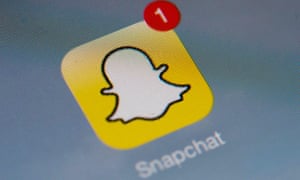
This article discusses the potential of Snapchat becoming a direct competitor in the advertising world due to advertisers targeting the youth audience. The advertising industry is currently dominated by Facebook and Google, which have recently come in for heavy criticism for their advertising practices as they currently dominant the industry by accounting for 58% of the $141bn global mobile ad market. Cathy Boyle, principal analyst at eMarketer, which produced the global mobile ad forecast suggests that“If there can be a third or fourth player they are interested in spreading the wealth beyond the duopoly.” However, the article also highlights the threats that Snapchat may face. Facebook, which dominates social media with 1.2 billion daily users and owns Snapchat’s most direct competitor, Instagram. Instagram had recently introduced a new function called stories, which is similar to Snapchat’s own story feature. Instagram Stories has already achieved 150 million daily active users. Also, snapchat's growth has seemed to slow down. The number of Snapchat users grew by 14% and 17% in the first two quarters of last year. Following the launch of Instagram Stories, Snapchat’s growth slumped to 7% and just 3.2% in the final two quarters of 2016. Overall, Snapchat has great potential for success in the advertising industry especially due to its young audience demographics.
- More than half (51%) of video users on Snapchat are under 24, compared with 23% for Facebook and 17% for Google’s YouTube, according to Ampere Analysis.
- The average daily user visits the app 18 times a day, spending an average of 25 to 30 minutes a day sending snaps and watching messages from their friends, celebrities and advertising brands.
I agree with the article in terms of the fact that the mobile advertising industry should take advantage of Snapchats target audience as there is great potential for Snapchat to be successful and take over the dominating space of large social media sites such as Facebook. However they should be wary of the tactics used by their competition and their slowing growth.
I agree with this article because traditional forms of media such as the cinema will always guarantee greater quality as films are intended for cinemas, and not TV screens.
Subscribe to:
Comments (Atom)
